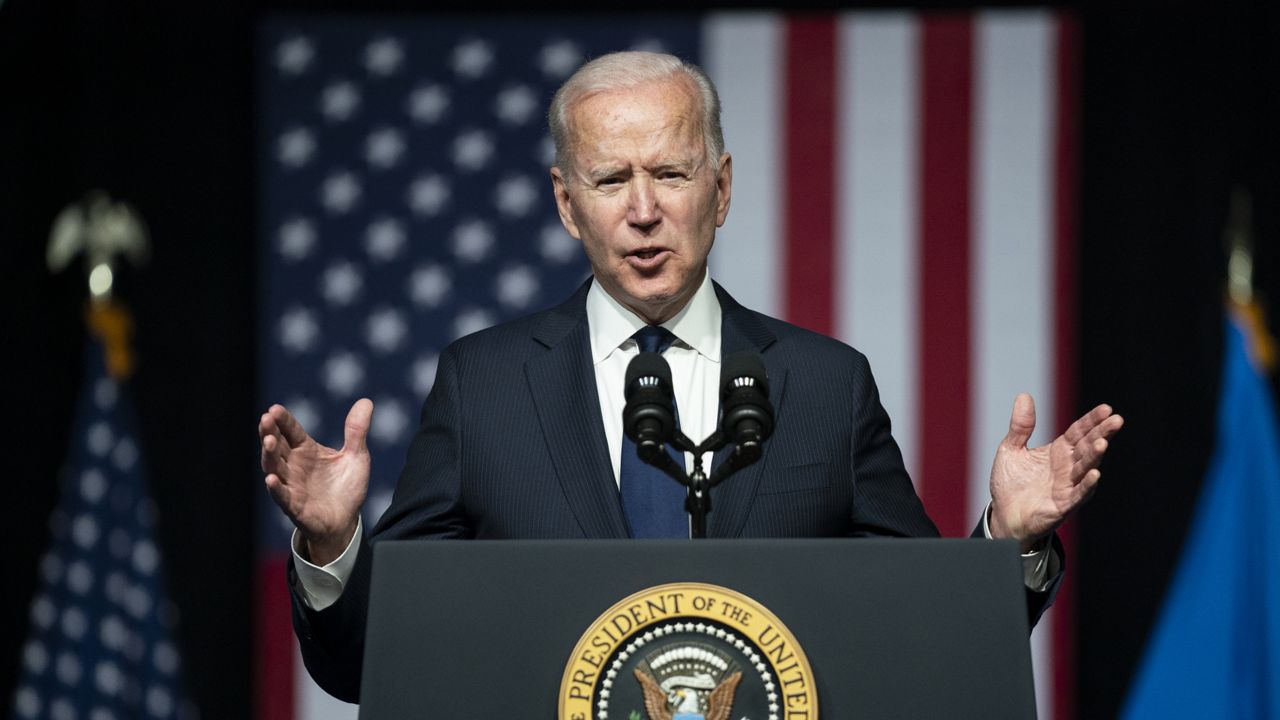President Joe Biden marked one of the nation's darkest — and largely forgotten — moments of racial violence on Tuesday, traveling to Tulsa on the 100th anniversary of Tulsa race massacre.
What You Need To Know
- President Joe Biden took part in a remembrance of the Tulsa race massacre Tuesday on the 100th anniversary of the destruction of a thriving Black community
- Biden is the first president to participate in remembrances of the destruction of what was known as “Black Wall Street”
- In 1921 — on May 31 and June 1 — Tulsa's white residents and civil society leaders looted and burned to the ground the Greenwood district and used planes to drop projectiles on it, killing up to 300 Black Tulsans
- Biden, while visiting the Greenwood Cultural Center, also announced new measures to help narrow the wealth gap between Blacks and whites
With his address, Biden became the first U.S. president to participate in remembrances for the hundreds of Black people killed by a white mob a century ago.
“For much too long, the history of what took place here was told in silence, cloaked in darkness,” the president said from Tulsa’s Greenwood Cultural Center. “While darkness can hide much, it erases nothing. Some injustices are so heinous, so horrific, so grievous, that they can't be buried no matter how hard people try."
“So it is here,” Biden said, adding: “Only with truth can come healing, justice, and repair.”
Between May 31 and June 1, 1921, white Tulsa residents took to the streets armed with weapons — many of which were provided by city officials — and slaughtered Black residents. The mobs also destroyed Black Wall Street, which at the time was a thriving business district and one of the wealthiest Black neighborhoods in the country.
Estimates of the death toll range from dozens to 300.
Biden acknowledged that the trauma from the event can still be felt today, noting that he met with the last three known living survivors of the massacre — Viola Fletcher, 107, Lessie Benningfield Randle, 106, and Hughes Van Ellis, 100 — earlier Tuesday.
The survivors told Biden not only about the brutality they experienced 100 years ago, but also of “the loss of living, wealth and posterity, possibilities that still reverberates today.”
“We do ourselves no favors by pretending none of this ever happened, or that it does not impact us today,” Biden said. “Because it does still impact us today.”
Despite its horror, the Tulsa massacre has only recently entered the national discourse, in part because survivors and civil rights leaders continue to push for reparations from the government.
Reparations for Black Americans whose ancestors were enslaved and for other racial discrimination have been debated in the U.S. since slavery ended in 1865. Now they are being discussed by colleges and universities with ties to slavery and by local governments looking to make cash payments to Black residents.
In the past, Biden has expressed support for a study of reparations, both in Tulsa and more broadly, but has not committed to payments.
Biden, while not specifically touching on reparations, used Tuesday’s visit to tout new measures that the White House hopes will help narrow the wealth gap between Blacks and whites and reinvest in underserved communities by expanding access to homeownership and small business ownership.
The actions include creating "launching a first-of-its-kind interagency effort to address inequity in home appraisals" led by Housing and Urban Development Secretary Marcia Fudge, conducting rulemaking to aggressively combat housing discrimination and setting a goal of increasing the share of federal contracts awarded to small disadvantaged businesses by 50% by 2026, funneling an estimated additional $100 billion to such businesses over the five-year period, the White House said.
The new actions will touch on “everything from redlining to the cruel fact that a home owned by a Black family is too often … appraised at a lower value than a similar home owned by a white family,” Biden said.
Biden also discussed ways his jobs plan — still a subject of negotiation with Congress — can help create jobs and build wealth in communities of color, in part by allocating more funds to HBCUs in order to “unlock more creativity and innovation.”
In part, the plans call for $200 billion toward free “universal, high quality preschool” for all three- and four-year-olds and $109 billion for two years of free community college, as well as billions in investments toward Pell Grants for low-income students, college retention and completion rates, and make an investment in HBCUs, TCUs and MSIs.
Combined, Biden’s American Families Plan and American Jobs Plan amount to nearly $4 trillion in what the White House calls “once-in-a-generation investments in our nation’s future.”
